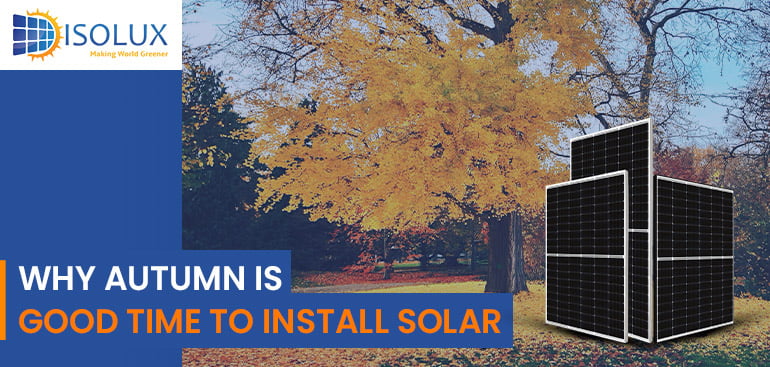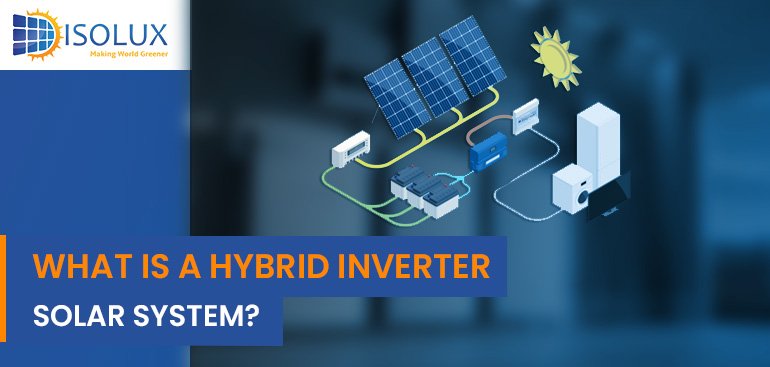As the leaves turn vibrant shades of red, orange, and yellow, and the air becomes crisp, autumn marks a transitional period for nature and homeowners considering solar energy installation. Harnessing the sun’s power becomes especially appealing as summer’s heat subsides. While it might seem counterintuitive to install solar panels as the days shorten and sunlight diminishes, autumn is, in fact, an ideal time for this investment. Here’s why:
Optimal Weather Conditions
Autumn offers a sweet spot between the scorching heat of summer and the frigid cold of winter. During this season, the moderate temperatures provide perfect conditions for installing solar panels. High temperatures in summer can make rooftop installations challenging and uncomfortable for technicians, potentially delaying the process. Conversely, icy conditions in winter can pose safety hazards and complicate the installation. Fall’s mild weather ensures that installers can work efficiently and safely, reducing the likelihood of delays and ensuring a quicker setup.
Enhanced Efficiency and Testing
Solar panels are more efficient in cooler temperatures. Although summer boasts the longest days and the most direct sunlight, excessive heat can reduce the efficiency of photovoltaic cells. By installing solar panels in the fall, homeowners can take advantage of cooler weather to test and calibrate their systems. This period allows for any necessary adjustments before the more extreme weather of winter and the high energy demands of summer. The panels can be monitored and fine-tuned to ensure optimal performance when they are most needed.
Financial Incentives and End-of-Year Discounts
Many solar companies offer financial incentives and discounts toward the end of the year to meet their annual sales goals. By installing solar panels in the autumn, homeowners can capitalize on these offers, often saving a significant amount on the overall cost of installation. Additionally, federal and state tax incentives for solar installations may have year-end deadlines. Installing solar panels in the fall ensures that homeowners can take full advantage of these financial benefits before they expire.
If you’re looking for a Professional Solar Panel Installer in Sydney, then Isolux Solar can be your first choice. With more than 11+ years of experience, we’re a local, reliable, and first choice of customers.
Preparation for Winter and Energy Savings
With shorter days and longer nights, winter typically sees an increase in energy consumption as people rely more on heating and artificial lighting. Installing solar panels in the fall allows homeowners to prepare for this spike in energy usage. Solar panels can help offset the higher energy costs associated with winter, providing a buffer against rising utility bills. Moreover, by generating their own electricity, homeowners can reduce their reliance on the grid, contributing to energy independence and sustainability.
Increased Property Value and Market Appeal
Investing in solar panels can significantly increase a property’s value. Homes with solar energy systems sell faster and at higher prices than those without. Installing solar panels in the fall can make a property more attractive to potential buyers who are looking to settle in before the winter holidays. This added appeal can be a compelling advantage in a competitive real estate market, making autumn an opportune time for this home improvement project.
Environmental Benefits
The environmental benefits of solar energy are well-documented. By installing solar panels, homeowners contribute to reducing their carbon footprint and promoting renewable energy. Autumn, with its themes of harvest and preparation, is a fitting time to embrace a sustainable lifestyle. By choosing to go solar in the fall, homeowners align their actions with the natural cycle of renewal and conservation, reinforcing their commitment to environmental stewardship.
Reduced Installation Wait Times
Summer is typically the busiest season for solar installations, leading to longer wait times and potential scheduling conflicts. By opting for a fall installation, homeowners can avoid the peak season rush. Solar companies often have more availability in the autumn, allowing for more flexible scheduling and faster project completion. This can be particularly beneficial for homeowners who want their solar panels up and running quickly to take advantage of the energy savings during the colder months.
Maximizing Solar Investment Before Winter
Investing in solar panels during autumn ensures that the system is operational before winter sets in. This timing allows homeowners to start seeing the financial benefits of their investment sooner. By the time winter arrives, the solar energy system will be fully functional, helping to reduce heating costs and providing a renewable source of energy during the darkest months of the year. This approach maximizes the return on investment and ensures that the benefits of solar energy are realized as early as possible.
Improved Technology and Market Conditions
The solar industry continues to innovate, with new technologies and improved efficiencies making solar panels more effective and affordable than ever. Fall is a great time to take advantage of these advancements, as the market often sees new product releases and updates at the end of the year. Homeowners can benefit from the latest technology and more competitive pricing, making their solar investment even more worthwhile.
Conclusion
Homeowners have plenty of good reasons to consider installing solar panels during the fall season. From optimal weather conditions and enhanced efficiency to financial incentives and increased property value, the benefits are clear. By choosing to install solar panels in the fall, homeowners can prepare for winter, reduce their energy costs, and contribute to a sustainable future. The changing season serves as a reminder of the natural cycles of renewal and conservation, making it the perfect time to embrace solar energy. With the right planning and execution, an autumn solar installation can provide long-lasting benefits, both financially and environmentally.




